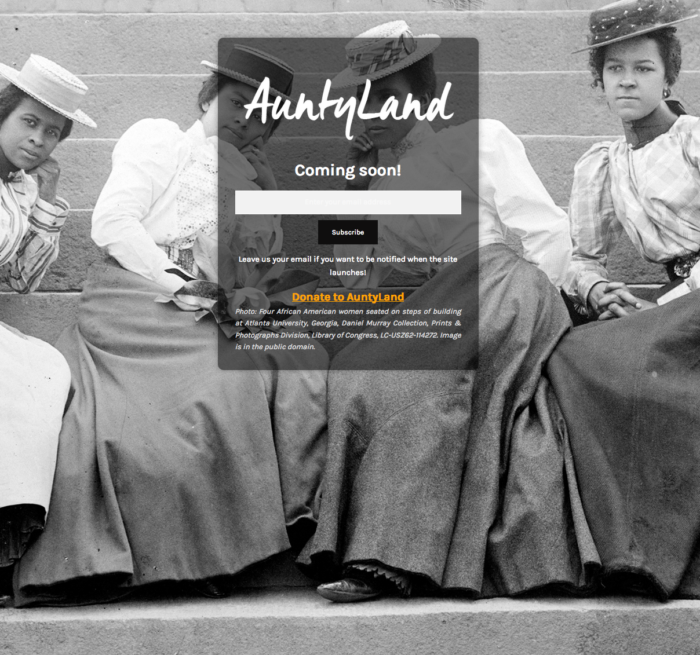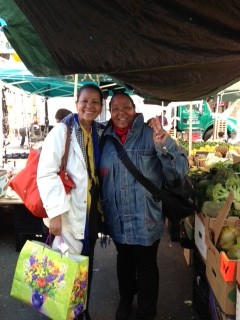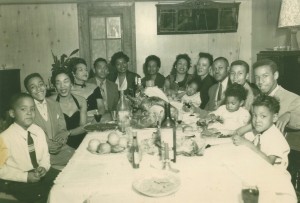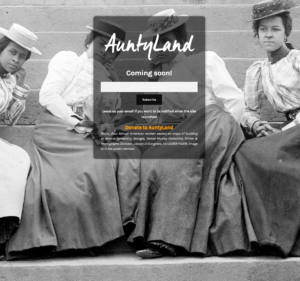 Auntyland affirms and honors Black, Indigenous, and People of Color aunt narratives, artists, and businesses through our annual holiday – Real Aunties Day. Because of COVID19, we shifted all activities online. We believe in scholarship and community. We aim to disrupt stereotypes about aunts and mature women of color with events, programs, and a new holiday called ‘Real Aunties Day’ set on March 8.
Auntyland affirms and honors Black, Indigenous, and People of Color aunt narratives, artists, and businesses through our annual holiday – Real Aunties Day. Because of COVID19, we shifted all activities online. We believe in scholarship and community. We aim to disrupt stereotypes about aunts and mature women of color with events, programs, and a new holiday called ‘Real Aunties Day’ set on March 8.
Decolonize Women’s History Month
“In our world, the word ‘Auntie’ and the ‘aunt’ role present complex historical and cultural meanings. Today, in 2021, colonialism and racism still impact our lives. Auntyland is an intersectional place where race, gender, and age meet. With ‘Real Aunties Day’ on March 8, we want to bring together some realness, to decolonize some national holidays starting with Women’s History Month,” said Sylvia Wong Lewis, Auntyland founder, and proud auntie.
Aunt-Centered
Aunt stories will take center stage for the first time. Mothers and grandmothers have been studied and celebrated for eons. But few understand the world of aunts. That’s where we come in. We will bring more creativity, scholarship, and rigor to teach about the aunt world.
Pronoun-defying superheroes
Why Auntyland? Because aunts are pronoun-defying superheroes, who have been overlooked too long! Aunts are chosen kinfolks, sometimes biological relations, second mothers, grandmothers, Godmothers, and more. Aunties play pivotal roles in strengthening Black, Brown, and Tan families and communities. We are especially reaching out to African American, Caribbean, African, and Asia women and siblings to document unique and resilient families and community traditions. This is the first time ‘real auntie’ stories will be collected and archived dynamically.
Activism, Social Justice
Auntyland is also a whimsical place full of joyful and amazing women. We are passionate about life and love. AND activism and social justice are our biggest concerns. Did you see us keeping vigil for the caged children at the borderlands? Do you see us marching and protesting daily for equality everywhere? Didn’t we save American Democracy at an Alabama election? Today more than ever, we need to disrupt the race, gender, and age bias– and take control of our narratives. Our voices and images are too often dismissed and stereotyped. No more!
Aunties Rule!
“When I think about my ‘aunties,’ I am filled with awe and gratitude. My mother’s friends and my parent’s siblings intervened in my life and the lives of my peers in pivotal ways. We hope to bring back some of that positive ‘auntie’ energy. “Where Sisterhood lives, Aunties Rule!’ is our motto. We aim to be a motivational and community-building space. Through our digital platform, events, and e-store, we hope to inspire, educate, and entertain,” Lewis added.
Have you ever been called ‘Auntie’ or ‘Titi’? Do you call anyone Auntie or Titi? These are cultural terms of endearment and respect titles for Caribbean, Latina, African, Asian, African American women, and siblings. But the word and the role can present different meanings depending on the circumstances. Let’s explore Auntyland!
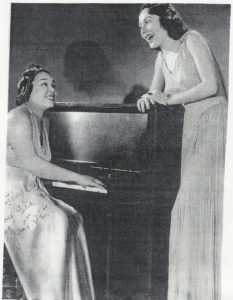
Share your stories
Let’s schedule your interview to be featured on our website, podcasts, or videos. Talk about ‘aunties’ of all kinds. Honor an Auntie by sharing her story for our archives. Share what’s happening in your world! Do you have aunties–related, chosen, or found in genealogy? Are you an aunt or grand aunt? Are you taking care of a niece, nephew, young or old? Are you living with an Auntie?
‘Real Aunties Day’: Our public programs and events, including films, sports, arts, workshops, panels, and festivals, will cover topics and issues for and about aunties and mature women of color. Details to come soon.
Photography/Artists: We are reaching out to mature women writers, artists, and creatives of all kinds: photos, artwork, illustrations, multimedia to be featured in our public programs.
Funding: We are community-based in New York City and independently funded via grants through our fiscal sponsorship with Fractured Atlas. To make a tax-deductible donation, click the direct link here. https://fundraising.fracturedatlas.org/auntyland.
Contact: If interested, please send an email to info@auntyland.com.
